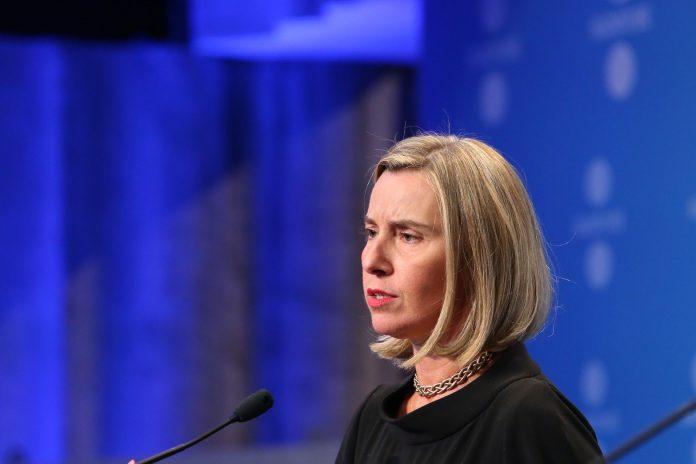The European Commission on April 17 adopted its annual Enlargement Package, including seven individual reports, assessing the implementation of the European Union’s enlargement policy which is based on established criteria and fair and rigorous conditionality.
According to the Commission, a credible enlargement perspective requires sustained efforts and irreversible reforms.
The current enlargement agenda covers the partners of the Western Balkans and Turkey. Accession negotiations have been opened with candidate countries Montenegro (2012), Serbia (2014), Turkey (2005). The former Yugoslav Republic of Macedonia (FYROM) is a candidate country since 2005 and Albania obtained candidate status in 2014. Bosnia and Herzegovina (application to join the EU submitted in February 2016) and Kosovo (Stabilisation and Association Agreement entered into force in April 2016) are potential candidates.
In a press release, the Commission noted its recommendation for the European Council to decide that accession negotiations be opened with FYROM and Albania, in light of the progress achieved, maintaining and deepening the current reform momentum.
More specifically, for FYROM, delivering on the urgent reform priorities will be decisive for the country’s further progress. For Albania, progress will be crucial in the key field in the rule of law, in particular across all five key reform priorities, and continuing to deliver concrete and tangible results, in the re-evaluation of judges and prosecutors (vetting).
“A step forward today for the former Yugoslav Republic of Macedonia and Albania is a step forward for the entire Western Balkans region,” said High Representative for Foreign Affairs and Security Policy/Vice-President of the Commission Federica Mogherini. “Our strategic focus and engagement are delivering practical progress and benefits to the people in the region. The work on reforms and modernisation however needs to continue, in the interest of the partners and the European Union.”
In turn, Johannes Hahn Commissioner for European Neighbourhood Policy and Enlargement Negotiations stressed the enlargement policy continues to be a key engine driving reforms in the Western Balkans. “It is modernising the region’s economies and societies, making it gradually a more prosperous and stable place which is also in the EU’s genuine interest,” he said. “The recommendations for the former Yugoslav Republic of Macedonia and Albania we issued today acknowledge the progress made. It’s an important step forward, but it is clear – and this counts for all Western Balkans countries: there are no shortcuts on the way to the EU.”
Still, important gaps remain. According to Hahn, the EU needs to see the reforms, especially in the rule of law, be implemented more vigorously and produce sustainable results. “These reforms are not ‘for Brussels’ – effective judiciary, effective fight against corruption and organised crime, efficient public administration, stronger economy – all this will directly benefit the region and its citizens, and Europe as a whole.”
Meanwhile, the Commission also published its annual assessments of the Economic Reform Programmes for the Western Balkans and Turkey. It shows continued economic growth and efforts to strengthen macroeconomic and fiscal stability in the light of current vulnerabilities. It recommend that sound policies should be maintained and strengthened and the reforms speeded up to reduce the still persisting macroeconomic risks and unlock sources for sustainable long-term growth and speed up convergence with the EU.

